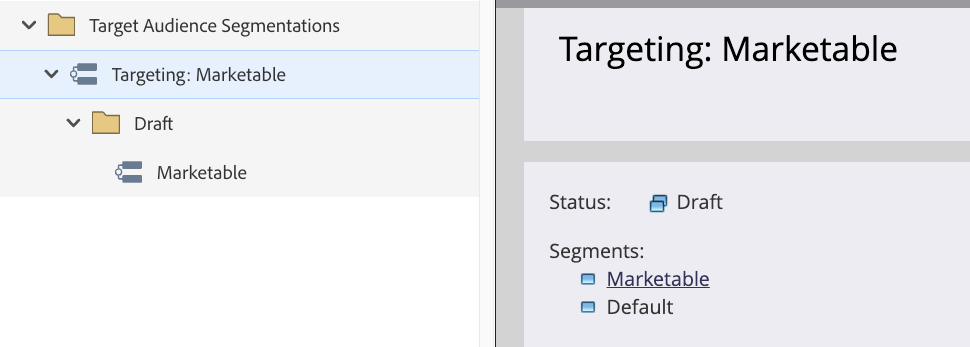What is Messaging Compliance?
Messaging compliance relates to the established laws that govern how companies can legally conduct their business when sending out email communications. Before you dive in, it’s important to remember when you are making compliance decisions, you should always work with your company’s legal team to determine your best path forward.
In 2003 the CAN-SPAM Act went into effect, which outlined specific requirements to follow when sending commercial messages, gives recipients the right to prevent emails from being sent to them (must have an opt-out/unsubscribe feature within your email), and explicitly explains the penalties associated with any violations that are made when the laws aren’t followed accordingly. The act, specific to the United States, covers all commercial messages, which the law defines as “any electronic mail message the primary purpose of which is the commercial advertisement or promotion of a commercial product or service.” All companies, regardless of size, have to abide by the rules set forth in this act in order to run their business within the legal framework of the laws.
If your company intends to send emails to countries outside of the United States, there are additional laws that must be adhered to as well, most notably the General Data Protection Regulation (GDPR), which applies to all of Europe, and Canada’s Anti-Spam Legislation (CASL). One of the major differences between sending emails within the US compared to other countries is how you are granted the ability to send email communications to your intended audiences.
In the US, no permission is required amongst your email recipients before being sent anything. Therefore, opting in is not required to send emails to these individuals. However, an opt-out feature must be present within every email. In countries like Canada or Europe, you’ll need explicit consent from recipients before being able to send email communications to them. To be more specific, the recipients will need to opt in to receiving your emails before you send them. In this blog, we’ll focus on the 3 laws mentioned above and how you should abide by them to remain compliant.
What is the CAN-SPAM Act?
When it comes to the CAN-SPAM act, there are certain requirements marketers must comply with that impact all communications sent via email. As mentioned above, one major aspect of this act pertains to a recipient’s ability to opt out from receiving your messages. The opt-out method can be executed via an unsubscribe link within your email or by including text in the email that asks the recipient to email you back to request their removal from the list.
In addition to providing some form of an opt-out method, a requested opt-out must be honored within 10 days. A marketing automation platform like Marketo Engage can process opt-outs in a streamlined and efficient manner.
You may be thinking “How can I reduce the amount of people opting out from my emails?” The nature of your subject lines can largely impact opt-outs. The CAN-SPAM act explicitly states to not use any deceptive subject lines. The subject line should accurately reflect the content of your email, otherwise you’ll mislead your recipients and likely cause them to opt out. Even worse, this will violate the act and can lead to legal consequences.
Additionally, the act has a few parameters in place which revolve around establishing credibility amongst your audience. You are required to have the “From” and “Reply to” fields in your emails accurately represent yourself or your company. You cannot create multiple generic domains to hide your identity or bypass email filters. Along with this information that’s representative of you or your company, you’ll need to include your company’s physical address at the bottom of each email. While following these established rules within the CAN-SPAM act won’t prevent all opt outs from occurring, it will help your company maintain its credibility, increase your deliverability rates by having lower hard bounces (permanent delivery issue such as an invalid email address), soft bounces (temporary delivery issue such as a full or inactive mailbox, a down or offline server, or the email message is too large to name a few), and spam blocks (recipient has labeled your messages as spam), and most importantly, allow your company to remain compliant.
What is GDPR?
As alluded to above, it’s important to understand regional differences that exist when it comes to messaging compliance. If your company has an international audience, your emails will be handled differently in comparison to your US audience. Therefore you must understand and abide by legal frameworks established by each country before sending any emails.
The General Data Protection Regulation (GDPR) is the European Union’s regulatory framework that oversees the proper and improper use of a consumer’s personal data. This law requires companies to obtain opt-in consent from recipients before sending marketing emails and also keep records of that consent (name of recipient, date they consented, what they gave consent through, and if they’ve unsubscribed). The opt-in must be an intentional action the recipient takes to grant consent and cannot be passive. For example, the recipient can check a box that clearly states they agree to receive future communications as opposed to simply having a pre-checked box in place that may be unintentionally unchecked by someone not wanting to receive future communications. This consent must be explicitly stated by clearly defining how you’ll handle the consumer’s data and the types of communications they can anticipate coming from you. Lastly, there must be a clear opt-out function within your emails. The GDPR has much more stringent messaging compliance laws compared to that of the US.
What is CASL?
Another notable messaging compliance law is the Canadian Anti-Spam Law (CASL) which covers emails being sent in or out of Canada, excluding messages routed through the country. Like the GDPR, it too requires consumers to actively give consent before a company can start sending them email communications. How the CASL differs a bit from the GDPR is that implied consent can sometimes be acceptable under the CASL. Implied consent can refer to a recipient who has a business or nonbusiness relationship with the sender, their email address has been published or they’ve disclosed their email, your messaging is relevant to them, and they haven’t expressed any desire to opt out of your emails. Unsurprisingly, documenting consent from your recipients is required.
Why should companies seek to improve Messaging Compliance?
Adhering to the legal messaging frameworks established by the countries your recipients reside in is critical to the success and longevity of your business. Failing to follow these laws can have severe negative consequences that can ultimately prevent a company from staying in business. Before your marketing operations team sends out any email communications, you’ll want to be sure they’re aware of the regional messaging compliance rules and how to follow them accordingly.
When should companies focus on addressing it?
Companies should focus on messaging compliance and establish a good understanding of it before any emails are sent out. Failure to do so can result in committing violations that come with hefty fines. Aside from this, within your Marketo Engage instance there should be parameters set in place to prevent your company from going over communication limits. Failure to not have this type of safety net in place increases the likelihood of too many emails being sent and therefore, makes it more likely to negatively impact your deliverability rates. It can’t be stressed enough how important it is to stay within the confines of these laws while utilizing best marketing practices.
How should a company improve Messaging Compliance with Marketo Engage?
There are a number of ways your company can improve messaging compliance with Marketo Engage. Regardless of where your target audience resides you must include an opt-out feature along with your physical business address somewhere within every email you send. With that being the case, the easiest way to ensure those two important factors are addressed is by building your emails from standardized templates you’ve created. That way you’ll never have to manually add this information in since it’s a part of the template. Not only is utilizing templated emails a best practice from a production standpoint, so is having a templated list outline to follow.

With consent being required among countries outside of the US, having a field for marketing consent (must be true) and marketing consent date will ensure every list imported into your Marketo instance has this data included. All of the leads stored in your database will have this essential information tied to their name as a result.
Another important aspect of Marketo you can utilize are segmentations. With segmentations you can categorize your target audience in a variety of ways, which can include the following: role, industry, geography, language preference, topic of interest, or company size. By using the geography segmentation, you can create Dynamic Content blocks to your emails or landing pages, which tells Marketo what exact content you want presented depending on the person who is viewing it. Having the correct segmentations in place will ensure the content, along with the relevant messaging, is present with each email you send and will ultimately allow you to effectively market to your target audiences.

Conclusion
The importance of adhering to messaging compliance laws cannot be understated. It should be of the utmost importance amongst your marketing operations team to ensure all email communications being sent are within the parameters of the laws. Your company should have a good understanding of these laws and how they differ between countries. While sending to your target audience within the US may be easier to accomplish, sending to outside countries may pose more challenges given the additional information you’ll need.
Obtaining explicit consent is the key difference amongst other countries and absolutely must be addressed before your company can interact with recipients in another country. Understanding how to implement your email communications within the confines of the laws established by CAN-SPAM act, GDPR, and CASL, along with other laws specific to countries outside of these regions, will allow your company to reach its full potential and conduct business on a global scale.







